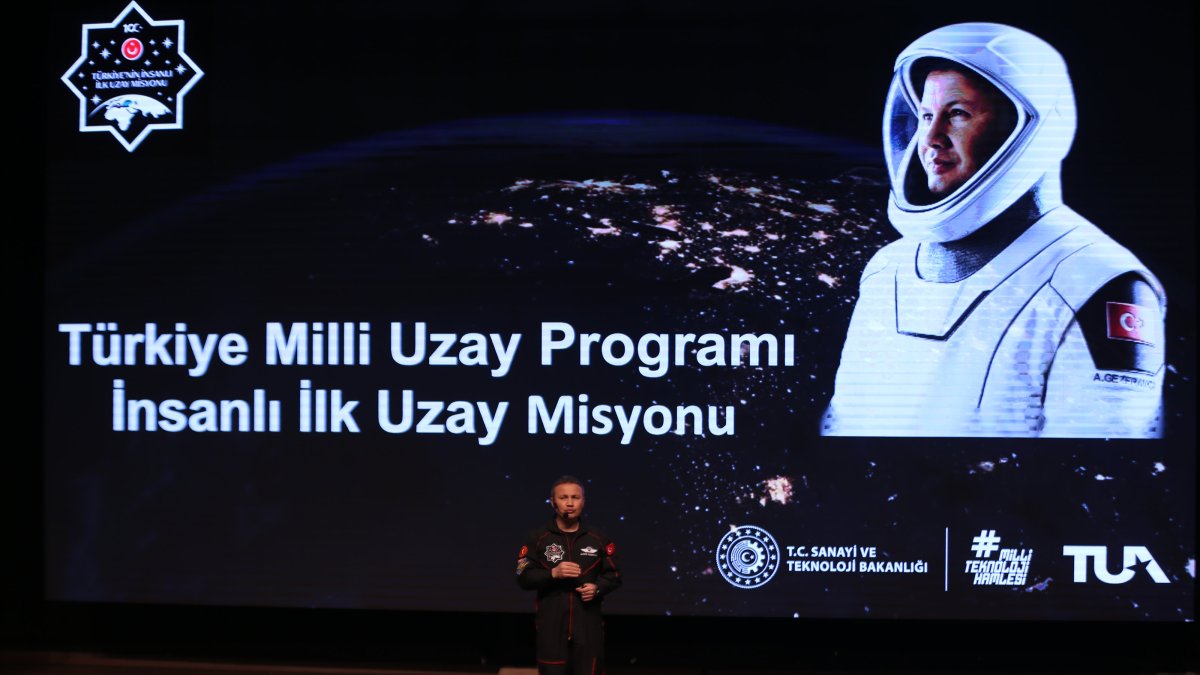
The recent article in The Economist mocking Türkiye’s space ambitions is not just an attack on our country; it reflects an Orientalist perspective that seeks to undermine all developing nations striving to advance in space.
This approach follows a familiar pattern: When non-Western countries invest in space, it is dismissed as an irrational “vanity project,” but when the United States or European nations do the same, it is celebrated as progress and scientific achievement. This double standard is evident in how Türkiye’s space efforts are portrayed – as if our investments are unnecessary while Western nations' investments are deemed essential for the advancement of humanity.
However, this outdated mentality no longer aligns with reality. Türkiye, along with India, Brazil, South Korea and the UAE, is proving that space is no longer the exclusive privilege of a few superpowers.
Türkiye’s space vision is not a temporary political initiative – it is a structured and long-term national strategy. Leading this effort is the Turkish Space Agency (TUA), which was established in 2018 as the central authority responsible for implementing Türkiye’s National Space Program. Announced in 2021, this program outlines ten key objectives, including developing domestic satellites, international collaborations and crewed space missions.
Having already successfully completed its first astronaut mission, Türkiye is now moving forward with its next major space milestone and one of its most ambitious goals: reaching the Moon. This mission aims to demonstrate the country’s deep-space capabilities in the coming years, marking another significant step in Türkiye’s growing presence in space exploration.
The global space economy has experienced significant growth, reaching $546 billion in 2023 – a 91% increase since 2010. However, this growth is not solely driven by traditional space powers; developing nations increasingly claim their place in this expanding sector. India’s Chandrayaan-3 lunar mission, the UAE’s Mars projects and Türkiye’s domestic satellite initiatives demonstrate that new players are emerging in the space race.
Türkiye’s space strategy is not merely about prestige but economic independence and national security. The country is rapidly advancing its capabilities in both public and private sectors to establish a strong presence in space. ASELSAN, Roketsan and TAI (Turkish Aerospace Industries) are at the forefront of developing cutting-edge space and defense technologies, ensuring Türkiye’s self-sufficiency in critical areas such as satellite systems, propulsion technologies and advanced avionics.
Meanwhile, Plan-S is spearheading efforts to establish a global satellite network, enhancing Türkiye’s technological capabilities and contributing to secure communications, remote sensing and navigation systems. At the same time, Fergani Space is demonstrating the increasing role of the private sector in Türkiye’s space ambitions, having successfully launched the FGN-100-D1 satellite, a crucial step toward developing a robust space ecosystem.
Türkiye is also working on constructing a new spaceport, which will be crucial for future space missions. While the location remains undisclosed, this infrastructure will enable Türkiye to play a strategic role in launching technologies and space-related advancements, moving the country closer to independent access to space.
Türkiye's first Moon mission, which aims to send a spacecraft to the lunar surface, will mark a historic first for Türkiye, demonstrating the country’s ability to conduct deep-space navigation, propulsion and communication. Importantly, Türkiye’s growing expertise in satellite production has played a crucial role in making this mission possible. The lunar spacecraft is being developed using technologies derived from Türkiye’s domestically-produced satellites, particularly in avionics, propulsion systems and communication subsystems.
Türkiye also plans to develop and test a domestically-produced hybrid rocket system, which will play a key role in future space missions. This technology could eventually be used for interplanetary missions, space-based resource utilization and international collaborations in the Moon economy.
Through this lunar initiative, Türkiye is not just participating in space exploration – it is leveraging its existing technological expertise to position itself as a serious contender in the new global space order.
Some critics question why developing nations invest in space. However, these criticisms ignore the fact that space is not just a field of scientific curiosity – it is a matter of sovereignty, security and economic progress.
Space technologies are central to numerous sectors, including communications, defense, agriculture, climate monitoring and disaster management. Countries that fail to invest in space risk becoming technologically dependent on others.
Moreover, the frequent Western narrative that engineers from developing nations prefer to work abroad is outdated. Türkiye is actively creating a thriving technology ecosystem for young engineers and scientists. Companies demonstrate that Türkiye is not only producing talent but also retaining and utilizing it for groundbreaking projects.
In recent years, investments in Türkiye’s space industry have provided opportunities for young engineers to work on global-scale projects without seeking employment abroad at institutions like NASA or ESA. Today, Turkish engineers are no longer just dreaming of working on space projects abroad – they are leading innovative projects at home that compete on an international level.
President Recep Tayyip Erdoğan’s statement, “The world is bigger than five,” has become a defining principle in international politics. Now, this principle applies to space as well.
Space cannot be monopolized by a handful of nations. The future of humanity among the stars must be shaped by all who dare to reach for it. Türkiye is not waiting for permission to participate in this future – we are actively building it. For those who still refuse to see reality, watch this space!



